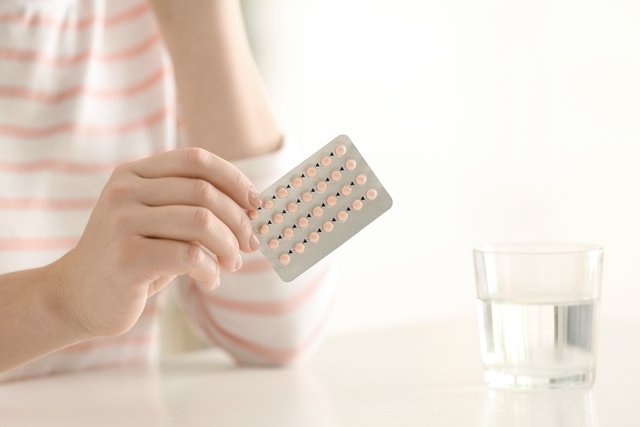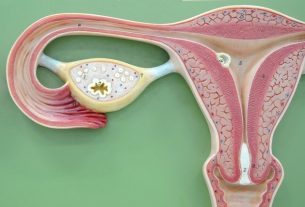The use of some antibiotics, such as rifampicin and rifabutin, can reduce the effectiveness or cut the effect of hormonal contraceptives, such as pills or injections, by interfering with enzymes responsible for the metabolism of hormones or reducing their absorption and, therefore, can increase the risk of an unwanted pregnancy.
Contraceptives are medicines that release female hormones (progesterone and/or estrogen) to regulate the amount of these hormones in the bloodstream, preventing ovulation from occurring or to thicken cervical mucus, making it difficult for sperm to reach the egg. In this way, they prevent pregnancy, as long as they are used correctly. Understand better how contraceptives work and how to use them correctly.
Whenever there is doubt, it is important to talk to the doctor responsible for treating the antibiotic to avoid interactions that could reduce or cut the effect of contraceptives.

Which antibiotics can reduce the effect of contraceptives?
Antibiotics that have been scientifically proven to cut the effect of contraceptives in the form of pills, minipills, injections, hormonal patches or vaginal rings are:
- Rifampin;
- Rifabutin;
- Griseofulvina.
Rifampicin and rifabutin are generally used to treat tuberculosis, leprosy or meningitis, while griseofulvin is indicated for the treatment of skin or nail mycoses, for example. These antibiotics alter enzymes responsible for the metabolism of hormones present in contraceptives, which can lead to a decrease in the amount of these hormones in the bloodstream, reducing their effectiveness in preventing pregnancy.
Are there other antibiotics that can affect birth control?
Although it is still controversial and there is no scientific proof, as in the case of rifampicin, rifabutin and griseofulvin, other antibiotics and antifungals also have the potential to interfere with the absorption of contraceptives:
- Combined oral contraceptive pill such as Diane-35, Mercilon, Minulet, for example: griseofulvin, penicillins, tetracyclines, erythromycin, clarithromycin, ampicillin, chloramphenicol, itraconazole, fluconazole, voriconazole;
- Injectable contraceptive such as Mesigyna, Cyclofemina, Perlutan, Ciclovular or Uno-ciclo, for example: benzathine penicillin G, ampicillin, amoxicillin, clarithromycin, erythromycin, tetracycline, doxycycline, sulfamethoxazole, sulfasalazine, sulfacetamide, griseofulvin, fluconazole, itraconazole, ketoconazole, voriconazole.
If you need to use these medications, it is very important to talk to your doctor to understand the risk of affecting the effect of the pill.
It is important to note that during the use of antibiotics, an imbalance of the intestinal flora may occur, which can result in diarrhea and lead to a reduction in the absorption of contraceptive hormones. However, this only happens if diarrhea occurs within 3 to 4 hours of taking the contraceptive. Other medications, such as anticonvulsants or antiretrovirals, can also reduce or reduce the effect of contraceptives. Check out other factors that reduce the effect of contraceptives.
What to do to avoid pregnancy
To avoid an unwanted pregnancy, whenever a woman uses an antibiotic, antifungal or any other medicine that may interfere with the action of the contraceptive, it is recommended to use a physical contraceptive method, such as a condom, for example, during the period of use and up to 7 to 28 days after the end of treatment, depending on the type of medicine recommended by the doctor.
It is important to always have guidance from the doctor who prescribed the antibiotic and the gynecologist so that the treatment is effective and safe, and does not interfere with the effect of the contraceptive.
Bibliography
- BOEHRINGER INGELHEIM DO BRASIL QUÍMICA E FARMACÊUTICA LTDA. Necessity. 2006. Available at: <https://static-webv8.jet.com.br/drogaosuper/Bulas/7795304085275.pdf>. Accessed on Aug 19, 2021
- BAYER. Mesigyna (norethisterone enanthate and estradiol valerate). Available at: <https://www.saudedireta.com.br/catinc/drugs/bulas/mesigyna.pdf>. Accessed on Aug 19, 2021
- ARCHER, J. S.; ARCHER, D. F. Oral contraceptive efficacy and antibiotic interaction: a myth debunked. J Am Acad Dermatol. 46. 6; 917-23, 2002
- BAYER. Diane 35. 2009. Available at: <https://www.bayer.com/sites/default/files/2020-11/Diane35.pdf>. Accessed on Aug 19, 2021
- ZHANEL, George G.; et al. Antibiotic and oral contraceptive drug interactions: Is there a need for concern?. Can J Infect Dis. 10. 6; 429–433, 1999
- DRUGS.COM. Antibiotics and Birth Control Pill Interactions: Fact or Fallacy?. 2020. Available at: <https://www.drugs.com/article/antibiotics-and-birth-control.html>. Accessed on Aug 18, 2021

Sign up for our newsletter and stay up to date with exclusive news
that can transform your routine!
Warning: Undefined array key "title" in /home/storelat/public_html/wp-content/plugins/link-whisper-premium/templates/frontend/related-posts.php on line 12
Warning: Undefined array key "title_tag" in /home/storelat/public_html/wp-content/plugins/link-whisper-premium/templates/frontend/related-posts.php on line 13



